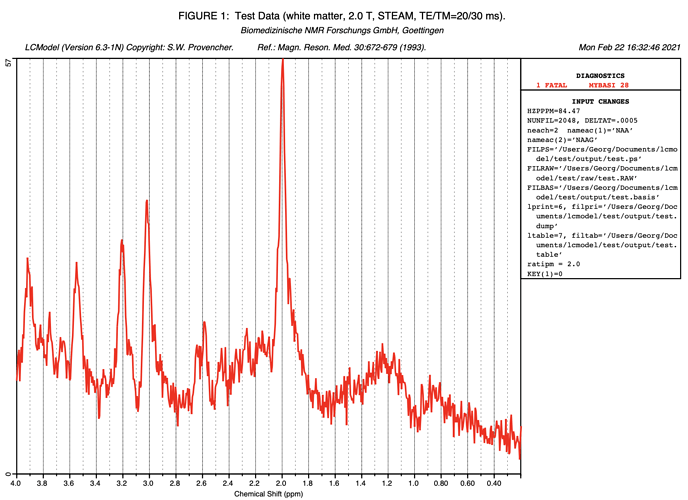I’ve successfully built the lcmodel binary on MacOS Catalina using the following steps:
EDIT: Updated the instructions in this post to reflect changes made after the excellent suggestions by @martin and @dave below!
- Download and install the gfortran compiler (https://github.com/fxcoudert/gfortran-for-macOS/releases/download/10.2/gfortran-10.2-Catalina.dmg), versions for other MacOS systems available here.
- Download and unzip the source code, enter the directory.
- Compile and link:
gfortran -c -fno-backslash -fno-f2c -O3 -fall-intrinsics -std=legacy -Wuninitialized -ffpe-summary=none LCModel.f
gfortran LCModel.o -o lcmodel
- Run a control file (I used the LCModel test control file that I copied from the Linux machine, but I haven’t run the makebasis on the test basis set, so there is no basis set and an error results in the final test run):
./lcmodel < /Users/Georg/Documents/lcmodel/test/control/test.control
@martin , want to compare one of your test datasets to see what the numerical differences are?
Cheers,
Georg
